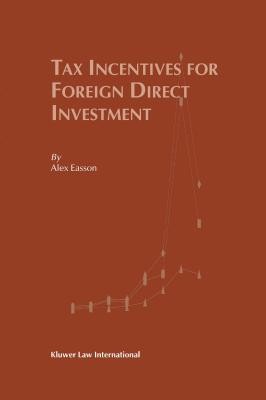
- We will send in 10–14 business days.
- Author: A J Easson
- Publisher: Kluwer Law International
- Year: 2004
- Pages: 241
- ISBN-10: 9041122281
- ISBN-13: 9789041122285
- Format: 16.6 x 24.5 x 1.8 cm, hardcover
- Language: English
- SAVE -10% with code: EXTRA
Reviews
Description
There is unrelenting pressure, particularly on taxation authorities in developing and transition countries, to design tax incentives to attract foreign investment. Although experience shows that justification for the use of such incentives can be found only in limited circumstances, policy makers everywhere continue to confer tax benefits on investors in the hopes of achieving various economic objectives. In this widely-researched volume, a leading consultant and academic in the field of international taxation surveys the major forms of FDI tax incentives in theory and in practice. Although it is not intended as a ¿design guide¿ for national taxation authorities, the book¿s scope and depth make it an indispensable source of comparative analysis, showing where efficiency and cost-effectiveness are most likely to lie in a wide range of economic situations. It is particularly valuable in its discussion of the following issues: Avoiding the ¿ race to the bottom¿ that comes from excessive tax competition;The elusive distinction in many countries between ¿ standard¿ and ¿ special¿ tax rates;The perceived benefits of FDI for the various stakeholders;Locational determinants;Risk factors;Distortionary effects;Sectoral competition; andAdministrative monitoring of compliance. Professor Easson draws on numerous actual patterns that arise in various national, supranational, and sectoral contexts, in each instance shedding light on real conflicts and constraints, and clarifying the choices required of investors, taxation authorities, and ¿target¿ enterprises. Tax Incentives for Direct Investment will clearly be of great use to government policymakers, students of international taxation and international business, and those who determine and advise on the policies of multinational corporations and other international investors.
EXTRA 10 % discount with code: EXTRA
The promotion ends in 19d.06:38:29
The discount code is valid when purchasing from 10 €. Discounts do not stack.
- Author: A J Easson
- Publisher: Kluwer Law International
- Year: 2004
- Pages: 241
- ISBN-10: 9041122281
- ISBN-13: 9789041122285
- Format: 16.6 x 24.5 x 1.8 cm, hardcover
- Language: English English
There is unrelenting pressure, particularly on taxation authorities in developing and transition countries, to design tax incentives to attract foreign investment. Although experience shows that justification for the use of such incentives can be found only in limited circumstances, policy makers everywhere continue to confer tax benefits on investors in the hopes of achieving various economic objectives. In this widely-researched volume, a leading consultant and academic in the field of international taxation surveys the major forms of FDI tax incentives in theory and in practice. Although it is not intended as a ¿design guide¿ for national taxation authorities, the book¿s scope and depth make it an indispensable source of comparative analysis, showing where efficiency and cost-effectiveness are most likely to lie in a wide range of economic situations. It is particularly valuable in its discussion of the following issues: Avoiding the ¿ race to the bottom¿ that comes from excessive tax competition;The elusive distinction in many countries between ¿ standard¿ and ¿ special¿ tax rates;The perceived benefits of FDI for the various stakeholders;Locational determinants;Risk factors;Distortionary effects;Sectoral competition; andAdministrative monitoring of compliance. Professor Easson draws on numerous actual patterns that arise in various national, supranational, and sectoral contexts, in each instance shedding light on real conflicts and constraints, and clarifying the choices required of investors, taxation authorities, and ¿target¿ enterprises. Tax Incentives for Direct Investment will clearly be of great use to government policymakers, students of international taxation and international business, and those who determine and advise on the policies of multinational corporations and other international investors.


Reviews